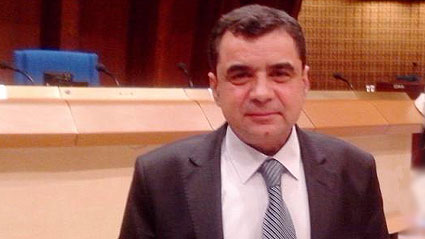360 Roma people are now making a living thanks to the Land – Revenue Source programme, implemented by the Plovdiv foundation of the same name. “We have existed since 2003, as the organization works mainly with poor Roma families that want to develop their own business. Whole families and not separate people are our target, as we see a poor person as a problem of the entire family. Thus each member of a family is involved in some labor activity,” says CEO of the foundation Ivan Penov, explaining the mechanism of work:
 “The families included find land they want to buy. The foundation signs a 5-year deferred payment contract and the Roma family pays 20 percent of the land’s price. The other 80 percent come from the foundation and we get them back by the end of the contract period, when farmers already own the land. Those usually buy small plots of 0.3 – 4 ha, but they are enough for their maintenance and sustainable development. The scheme is simple, but effective and has been working for years now. After the purchase of the land the second stage comes for our assistance – we provide money for fertilizers and plant protection. Our agronomists give advice on agricultural issues too.”
“The families included find land they want to buy. The foundation signs a 5-year deferred payment contract and the Roma family pays 20 percent of the land’s price. The other 80 percent come from the foundation and we get them back by the end of the contract period, when farmers already own the land. Those usually buy small plots of 0.3 – 4 ha, but they are enough for their maintenance and sustainable development. The scheme is simple, but effective and has been working for years now. After the purchase of the land the second stage comes for our assistance – we provide money for fertilizers and plant protection. Our agronomists give advice on agricultural issues too.”
The foundation works now with 117 Roma families from the Plovdiv District. It has bought 30 ha of farmland and the families have hired additional 30 ha. They have another project with schools, aiming at the understanding that children should go to school, in order to acquire skills and to become experts. The project is financially supported by the America for Bulgaria foundation.
“Three of our Roma partners have now diplomas from an agricultural college and think of their master’s degree. Over the past years our foundation has been assisting Roma families for applications for EU funding. We have helped a few families to apply under the Young Farmer project and the Rural Development OP. We provide support with the documents only that are complex and a compulsory feature. We trace all stages of project payment, as the funds received are significant and contribute to the acquiring of fixed assets, such as farm machineries, tractors, vans etc.”
The foundation popularizes the project across the entire country and works with local organizations that know the problems of the region and the people. Kyustendil, Vidin, Razgrad and Rakitovo have joined the project. Other two regions will follow them in 2014.
“We don’t want to be the cap for the other participants and the idea is to help them develop their own projects, complied with the specifics of the different regions. The results are more than good. Integration is the final goal and we try to change the way Roma people think by turning them into owners. An owner thinks in a different way. Thus we fight problems like absence from school. We achieve sustainable development,” Ivan Penov goes on to say.
Of course, the recognition followed soon. The foundation received the exclusive award of the EC for 2013 for its latest project, named Integration of Roma Communities via Economic Initiatives, funded by America for Bulgaria. “We are a small organization and we were surprised by the fact they had spotted us. We are happy with this recognition. We think this is the way to work with isolated communities – through funding and advice. Both things should go along together, in order for success to be achieved,” Ivan Penov says in conclusion.
English version: Zhivko Stanchev
Timișoara, a large multicultural city in western Romania, is the center of the historical community of the Banat Bulgarians . The members of this community are descendants of settlers from the Bulgarian lands nearly three centuries ago, who have..
In Gabrovo – a city in the geographical center of Bulgaria, once described as the Bulgarian Manchester, but today facing demographic challenges – there are young people who believe that the future can be better and that this largely..
For 15 years, Stela Nedkova has been living in Brussels . After completing her education in Bulgaria, she decided to test herself in a different reality to see whether she could handle life’s challenges on her own, without her parents’ help. Stela faced..

+359 2 9336 661
